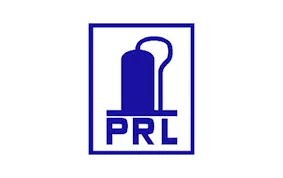Karachi October 10 2022: Front-End Engineering Design (FEED) of Pakistan Refinery Limited (PRL) expansion is expected to be completed by September 2023, subsequent to which, Financial Close and Final Investment Decision (FID) is expected to be achieved by June 2024, according to information shared by the company.
“Engineering Procurement Construction (EPC) phase will then take ~ 3 years, targeting project completion by June 2027” says Company Chairman Tariq Kirmani.
Tariq added, “To further augment the overall efforts to bring much needed investment in Pakistan’s refining sector, PRL and remaining local refineries are continuously engaged with Government of Pakistan to have the ’Refining Policy’ approved, which will pave the way for realization of significant investment not only in PRL, but across the country’s entire refining industry.”
“The project economics is primarily based on an independent price study by M/s Wood Mackenzie and yields a healthy IRR which easily meets the general threshold of required return on investment in projects of this size” says Company Chief Executive Officer Zahid Mir.
Pakistan Refinery Limited (PRL) is undertaking the Refinery Expansion and Upgrade Project (REUP) with the objective of Expansion of crude processing capacity from current 50,000 bpd to 100,000 bpd, Upgrading the refinery from Hydro-skimming configuration to a Deep Conversion Refinery, thereby significantly reducing production of HSFO and Production of environmentally friendly fuels, i.e. EURO V compliant HSD and MS/Petrol.
To meet above objectives, a Detailed Feasibility Study (DFS) was conducted by M/s Wood Group UK Limited. After exhaustive evaluation of options, globally available technologies and configurations, a Residue Fluidised Catalytic Cracking (RFCC) based configuration, along with other major plants was selected. The proposed complex will add ~ 16 plants to the existing setup of 4 plants, at an estimated cost of USD 1.2 billion. An RFCC based configuration was deemed to be the best fit as it has a proven track record and minimises the technological risks, at the same time it almost eliminates Fuel Oil, significantly reduces CAPEX requirements (compared to earlier estimates), yields healthy GRM and returns.
REUP will increase the MS production from current 0.27 million tons/annum to 1.5 million tons/annum and HSD production will also increase from current 0.68 million tons/annum to 2 million tons/annum. This additional production of MS and HSD (~ 2 MTA) with the expansion and upgrade can easily be consumed in the country, which is currently importing significant volumes of MS and HSD. The current production (2021-22) of MS and HSD in the country is around 7 million tons/annum, compared to a combined demand of 16 million tons/annum. The shortfall of ~9 million tons/annum is met through imports, hence additional production of HSD and MS by PRL of ~2 million tons/annum can be easily accommodated in the local market even at current demand levels (which are projected to be in the vicinity of around 20 million tons/annum by 2025). This aspect of the project addresses the risk of ‘demand supply’ because additional production of HSD and MS will substitute import and significantly save valuable foreign exchange of the country. The project also introduces high value ‘Propylene’- a basic raw-material produced by petrochemical industries, into the product slate. This addition to the Company’s product slate will set-up the refinery for a potential petrochemical option in the future. Propylene and other similar raw materials of plastic manufacturing industry are in high demand in the country and are currently imported.
PRL REUP is a brown field project and is planned to be built in an ‘island mode’ without interrupting operations of existing refinery. Besides having ‘zero’ demand supply risk for the additional quantities of HSD and MS produced, it also enjoys following advantages – which would be important for global investors in decision making:
PRL is in possession of 200 acres of land. Existing refinery units, tank-farm, utilities, warehouses and admin facilities occupies a part of the available land, leaving ample space in the existing refinery plot to accommodate new units of expansion and up gradation.
Presence of critical infrastructure – pipelines and tankage, lead to a significant saving in project cost which otherwise increases cost of a green field project.
PRL has term contracts with ARAMCO, Abu Dhabi National Oil Company (ADNOC) and Kuwait Petroleum Company (KPC), all being major regional crude suppliers. These agreements provide assurance of crude supplies for sustained refinery operations.
Long term product uplifting contracts with PSO and Shell Pakistan Limited provide the assurance of product upliftment.
Full support of Government of Pakistan and PSO (being the parent company of PRL) to go ahead with expansion and upgrade project. PRL is vital for PSO for ‘backward vertical integration’ and PRL’s REUP fully blends with PSO’s efforts in this regard.
Through competitive bidding process amongst leading financial institutions of the country, PRL has appointed Consortium of United Bank Limited and JS Global Capital Limited as Financial Advisor and Arranger for local debt and equity component for REUP.
As the project will deploy state of the art licensed technologies, potential global licensors currently participating in the project license tendering are UOP (USA), Axens (France), KBR (USA) and Haldor Topsoe (Denmark). Deployment of these technologies, currently not available in the country, will not only lead to acquisition and transfer of technology to the country, but at the same time it will also develop Pakistan industry professionals on the usage of most advanced refining technologies available globally.
PRL currently processes variety of regional crude including Arab Light, Arab Extra Light, Kuwait Super Light (KSL), DAS, Murban, Upper Zakum. Usage of these crudes along with additional regional and global crudes is being evaluated in detail as part of FEED.










